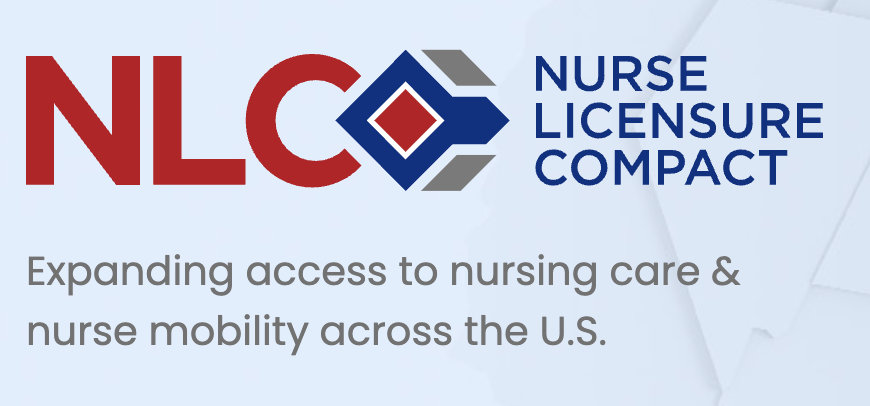The Nurse Licensure Compact (NLC) continues to streamline healthcare access across the United States. As of May 2024, 41 states and territories participate in the NLC, allowing nurses with a multistate license to practice in those jurisdictions without obtaining additional licenses. This blog explores recent changes to the NLC in 2024 and the implementation status of four key states: Louisiana, Pennsylvania, Washington, and West Virginia.
Changes to the NLC in 2024
The most significant change to the NLC in 2024 concerns a multistate licensee’s primary state of residence (PSOR). Effective January 2nd, 2024, a new rule requires nurses who move from one compact state to another to apply for a multistate license in their new PSOR within 60 days. Previously, nurses could practice with their old state license until their new license was issued. This update aims to streamline communication and record-keeping between states.
State-by-State NLC Implementation Status
There are five more states in various stages of implementing the NLC: Louisiana, Pennsylvania, Washington, and West Virginia:
-
Louisiana: Louisiana fully adopted the NLC for both Registered Nurses (RNs) and Licensed Practical Nurses (LPNs) in December 2023. This means nurses holding active, unencumbered multistate licenses from other compact states can practice in Louisiana without obtaining an additional license.
-
Pennsylvania: Pennsylvania has yet to fully implement the NLC. While legislation is pending, there’s no confirmed date for its enactment. Nurses residing in Pennsylvania cannot currently apply for a multistate license. However, nurses with a multistate license from another compact state may be able to practice in Pennsylvania under specific circumstances. Check with the Pennsylvania State Board of Nursing for the latest information.
-
Washington: As of January 31st, 2024 Washington is a full member of the NLC.
-
West Virginia: Similar to Louisiana, West Virginia fully adopted the NLC for both Registered Nurses (RNs) and Licensed Practical Nurses (LPNs) in Januar 2024.
- Rhode Island: As of January 1st, 2024 Rhode Island is a full member of the NLC.
Benefits of the NLC for Nurses
For nurses, the NLC offers several advantages:
- Increased Job Mobility: Nurses with a multistate license can easily transition between compact states for employment opportunities.
- Reduced Licensing Costs: NLC eliminates the need to obtain and maintain separate licenses in each compact state, saving nurses significant time and money.
- Disaster Relief Efforts: Nurses can readily deploy across state lines to assist in disaster relief situations.
Benefits of the NLC for Patients
The NLC also benefits patients by:
- Increased Access to Care: NLC expands the pool of qualified nurses available to provide care, especially in underserved areas.
- Improved Continuity of Care: Patients with ongoing care needs can benefit from the ease of nurses transitioning between states.
- Streamlined Telehealth Services: NLC facilitates the use of telehealth services across state lines, ensuring patients can access care from qualified providers regardless of location.
Additional Resources for Nurses
This blog is accurate as of May 2024, but more states and territories are joining the NLC all the time. Here are some other resources for nurses seeking the most up-to-date info:
- Nurse Licensure Compact Website: https://www.nursecompact.com/
- National Council of State Boards of Nursing (NCSBN): https://www.ncsbn.org/
- State Board of Nursing Websites: Each compact state has its own Board of Nursing website with specific information about NLC implementation.
